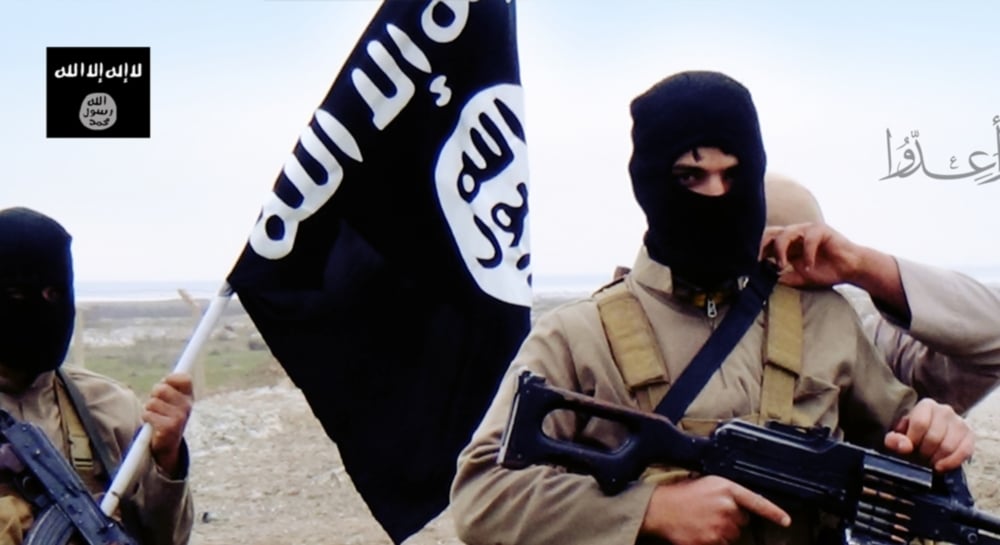
The Senate vote of 78-22 to approve a temporary spending bill that included money to support training of vetted Syrian opposition groups to fight Islamist fundamentalists drew praise from President Barack Obama late Thursday.
“I want to thank leaders in Congress for the speed and seriousness with which they approached this issue,” Obama said in a statement shortly after the Senate voted to approve a continuing resolution that will keep the government operating into December and pay for the opposition forces training.
The House passed the same bill Wednesday.
But this week, as both houses, were heading next to recess until the mid-term elections how to confront the growing threat from the Islamic fundamentalists occupied the attention of both houses and their key oversight committee — Armed Services and Foreign Affairs.
Thursday, Rep. Buck McKeon [R-Calif.] and chairman of the House Armed Services Committee, opened a hearing wondering if the president had gone far enough. ”By taking options off the table, I fear the president is setting the mission, and our military, up for failure rather than success.”
The training cycles would last “about eight weeks,” Gen. Martin Dempsey, chairman of the Joint Chiefs of Staff, said at a Senate Armed Services Committee hearing earlier this week. Defense Secretary Chuck Hagel said he expected about 5,000 Syrian moderates to be trained over the course of a year.
“What group of Syrians does this force report to and is accountable to?” Dempsey said Thursday at the House Armed Services Committee hearing on the threat of the Islamic State in Iraq and Syria (ISIS or ISIL or simply the Islamic State).
“We don’t want to build a force that is accountable to us.”
Building that political entity will take time and remains a difficult challenge, he added
The idea in training this force is not to have them work solely in small units “to go and conduct guerrilla tactics or to defend their village.” Dempsey, who trained Iraqi security forces, said that the goal was to have them operate under a chain of command whose leaders “can maneuver a couple of hundred of these opposition groups at a time.”
The administration estimates that ISIL has more than 30,000 fighters and controls large sections of both Iraq and Syria.
While saying President Barack Obama hasn’t yet decided if the opposition force will operate with American air power in Syria, though it will be an option he will offer, “there are some pretty capable Arab air forces in the region” that it could partner with.
Dempsey sees ISIS as a near-term threat to Lebanon. As for Saudi Arabia, he didn’t say the threat was immediate, but “I’d be absolutely concerned, as I think the Saudi are [about] the eastern oil fields and maybe even challenge the two holy cities.”
What concerned several senators at Tuesday’s hearing on the ISIL threat is what would happen to the moderate Syrian opposition if the regime of Bashar al Assad attacked them.
Senator John McCain (R-Ariz.) said, Assad “will attack them from the air, which he has done and with significant success. . . . Would we take action to prevent them from being attacked?”
Hagel said, “They will defend themselves,” adding, “Any attack on those that we have trained and who are supporting us, we will help them.”
Dempsey said there would be difficulty in building a coalition—particularly in the Arab League—that put as its prime objective the removal of the Assad regime. “I think what you’re hearing us express is an ISIL first strategy.”
McCain responded, “You think that those people you’re training will only go back to fight against ISIL.”
“The idea is to squeeze ISIL from multiple directions,” Dempsey said.
To Sen. Clair McCaskill (D-Mo.) that meant also looking at the Sunnis in Iraq for their assistance. “Clearly, the moderate Sunnis have thrown in with ISIL because of the problems, political problems, that they were confronted with in terms of exclusion from the Iraqi government.”
She noted that some Shia clerics have “put pout the call to repel ISIL,” and Shia militias “have been partially responsible for the success that has occurred on the ground.”
Dempsey added that not only was it an ISIS-first approach in Syria, but the first action against it would have to be in Iraq “and then find a way over time in Syria, initially to disrupt using air power and eventually to pressure using the moderate opposition, then I think we’ve put ISIL in an untenable position.”
At the Senate hearing Dempsey said that he would lay out an option to the president of having advisers with Iraqi forces under certain conditions, such as trying to retake Mosul, Iraq’s second largest city.





